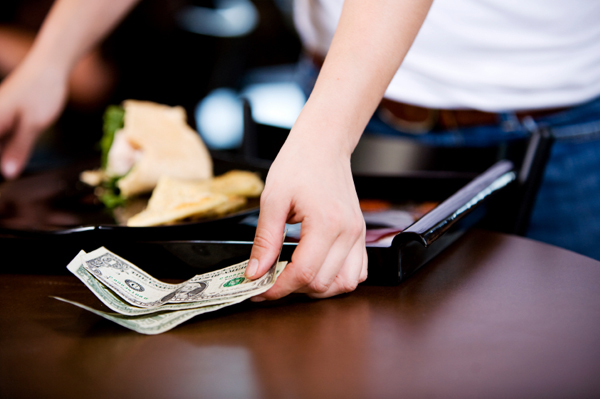Tipping Guide: How much to tip when travelling?
mis à jour le 6 July 2015 à 10:30Get yourself equipped with these tipping dos and don’ts so the next time you decide to leave that token on the table – you’ll think twice.
To tip or not to tip? If this question has crossed your mind more than once, chances are, you might have tipped someone more than you should, or neglected those who deserved it more. But fret not, because even the most seasoned of travellers can sometimes get tripped up by tipping.
While the amount you tip is completely at your own discretion - tipping rules vary from country to country – so how would you know if you should even tip at all? Scroll down for a list of solid-gold rules to help you handle the tricky practice of tipping in a foreign country.
Now, expressing your gratitude never felt easier!
What you should do:
Talk to an experienced person
Sure, there might be tour guides around but nothing beats knowledge from a native, or a friend who has recently visited the country. And if you still can’t seem to find anyone who can help – there are always hotel staffs to ask you’re unsure.
Observe the locals
Follow their lead, because tipping rules may have changed since you last visited that destination. Look around you and see what others are doing. Did everyone else tip the crew and captain after a boat ride? Was there money left on the empty tables at the restaurant? If your answers were a definite ‘yes’, then well, you get the drift.
Do some research before you go
Want to avoid awkward or offensive encounters with a service staff during your trip? Then do your research. We suggest you pore over a good guidebook for more detailed information on local tipping practices - so you won’t be caught off guard when juggling street clowns expect some form of reward once you’ve snapped their picture.
Keep a lookout for that service charge
If there is a service charge on your receipt, it pretty much means your decision to tip has already been decided for you. Always find out if the percentage of service charge is considered a base rate, as it can be acceptable for some places to not require further tips once service charge is included in the bill. Still, to be safe – leave a small amount for the server (especially if you think the service was exceptional) in places where tipping is accepted.
Always carry local currency
Although many countries are open to accepting foreign currencies, having some local currency on hand does no harm. You never know if the locals are wary of accepting foreign money, so to save yourself from all the trouble - break your cash into small bills by using larger notes to pay for your souvenirs and meals, and keep the change as tips.
What you shouldn’t do:
Ask someone if they need to be tipped
Trust us when we say asking the staff if they require a tip isn’t the best approach, and here’s why. Not only does this present a conflict of interest to a cash-strapped service person who doesn't normally take tips - but in countries where saying what you mean is not the social norm, a clueless traveller may end up stiffing the polite waiter.
Assume you don’t have to tip
Well, in some countries, the majority of a person’s income comes from the tips they earn. So don’t assume that you shouldn’t tip at all even if your service staff doesn’t mention anything (perhaps to come across as being polite). Don’t know how much you should tip? We say about 5 to 10% the cost of that particular service, or a few dollars (in local currency). Needless to say, do your research first and ensure that tipping is a generally accepted practice in that country!
Jinghui Lee




